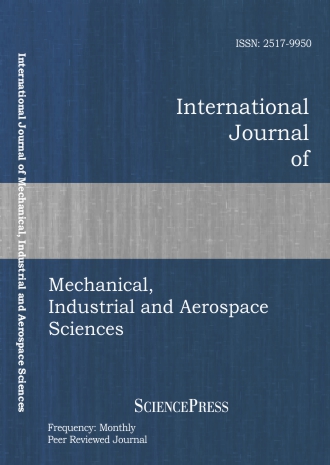
Scholarly
Volume:8, Issue: 10, 2014 Page No: 1753 - 1761
International Journal of Mechanical, Industrial and Aerospace Sciences
ISSN: 2517-9950
Comparative Studies on Dissimilar Metals thin Sheets Using Laser Beam Welding - A Review
Laser beam welding for the dissimilar Titanium and
Aluminium thin sheets is an emerging area which is having wider
applications in aerospace, aircraft, automotive, electronics and in
other industries due to its high speed, non-contact, precision with low
heat effects, least welding distortion, low labor costs and convenient
operation. Laser beam welding of dissimilar metal combinations are
increasingly demanded due to high energy densities with small fusion
and heat affected zones. Furthermore, no filler or electrode material is
required and contamination of weld is also very small. The present
study is to reviews the influence of different parameters like laser
power, welding speed, power density, beam diameter, focusing
distance and type of shielding gas on the mechanical properties of
dissimilar metal combinations like SS/Al, Cu/Al and Ti/Al focusing
on aluminum to other materials. Research findings reveal that Ti/Al
combination gives better metallurgical and mechanical properties
than other combinations such as SS/Al and Cu/Al.